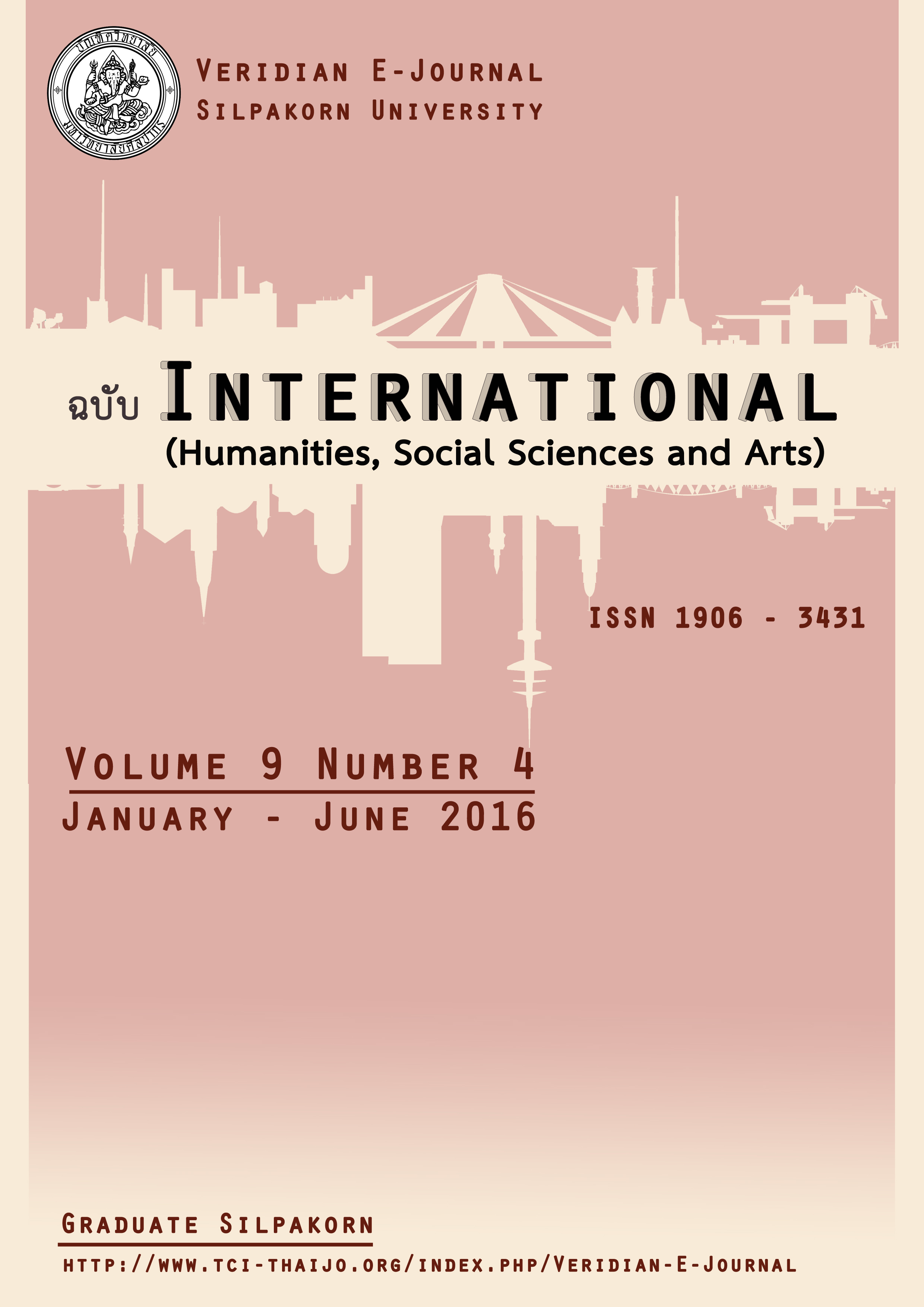An Examination of the Textual Qualities “Agency” and “Power” in EFL Writing
Main Article Content
Abstract
The teaching and learning of English as a foreign language (EFL) writing in Thailand is mostly concentrated on the body of the language and on objectivity and reliability. What we teach so little, therefore, is matters about the function of language. “Agency” and “power” are two textual qualities out of many others on this side. While these two qualities are hard to grasp in text, they are highly valued by composition teachers and are the sources of other high-order textual qualities such as being interpretative and analytical. This small-scaled, but insightful study, adopting a qualitative method, attempted to decipher them in Thai students’ writing. The researcher looked for these two qualities in thirty-six paragraphs from thirty-six Thai university students and learners with two different proficiency levels. Using Corbin and Strauss (1998)’s methodology for grounded theory, the researcher categorized words, phrases, ideas, and expressions into the two textual qualities. The results showed that 1) opinions exhibit more agency than the pronoun I, and opinions or reasons, well-formed sentences with details, writer’s strategies, word choice, and argument are crucial in achieving power, 2) writer’s involvement in the topic and opinions or reasons are two features shared by both qualities, and 3) linguistic inability and informative writing hinder the construction of agency and power.
การเรียนการสอนการเขียนภาษาอังกฤษในฐานะภาษาต่างประเทศนั้นเน้นที่การสอนตัวภาษาเน้นรูปธรรมและความเชื่อมั่นในการวัดผล ดังนั้นสิ่งที่น้อยหรือขาดไปคือการให้ความสำคัญด้านหน้าที่ของภาษา สำหรับการศึกษาเรื่อง ตัวตน (agency) และ พลัง (power) ในการเขียนนั้นเป็นส่วนหนึ่งของความพยายามที่จะข้ามข้อจำกัดดังกล่าว แม้ว่าการศึกษาของสองลักษณะ (ตัวตนและพลัง) นี้ในงานเขียนจะทำได้ยากในงานเขียน ทั้งสองลักษณะนี้ได้รับการตีค่าอย่างสูงโดยนักทฤษฎีทางการเขียน อีกทั้งยังเป็นแหล่งที่มาของคุณลักษณะงานเขียนระดับสูงหลายลักษณะ เช่น การตีความและการวิเคราะห์ งานวิจัยชิ้นนี้เป็นงานวิจัยเชิงคุณภาพแบบสมบูรณ์ ผู้วิจัยวิเคราะห์คุณลักษณะของพลังและตัวตนในงานเขียนย่อหน้า 36 ชิ้นจากนักศึกษาและผู้เรียนชาวไทย 2 กลุ่มที่มีความสามารถทางภาษาอังกฤษต่างกัน กลุ่มๆละ 18 ชิ้นโดยวิธีของการสร้างทฤษฎีใหม่ของ คอร์บิน (Corbin) และสเตราส์ (Strauss) พบว่า 1) การออกคำคิดเห็นช่วยสร้างตัวตนมากกว่าการใช้สรรพนามบุรุษที่ 1 ขณะที่ความคิดหรือเหตุผล ประโยคโครงสร้างดีที่มีรายละเอียด การเลือกใช้คำ และการโต้แย้ง จะทำให้เกิดพลังในการเขียน 2) ความรู้สึกว่าผู้เขียนมีส่วนร่วมในสิ่งที่เขียนและการแสดงความคิดหรือเหตุผลเป็นสองลักษณะที่แสดงทั้งตัวตนและพลังของผู้เขียน และ 3)การขาดทักษะทางภาษาและการเขียนแบบให้ข้อมูลเท่านั้นเป็นอุปสรรคต่อการสร้างตัวตนและพลังในการเขียน

